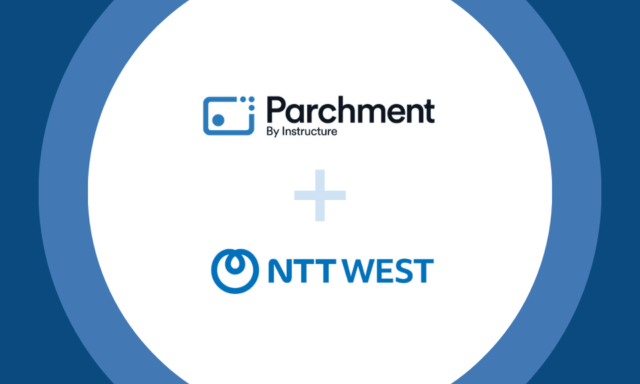
International
Parchment by Instructure and NTT West announce partnership in Japan
Parchment by Instructure is pleased to announce its partnership with NTT West in Japan.
For the millions of American families banking on financial aid to send kids to college, applying for funds early can mean the difference between getting a hefty payout — or getting nothing at all. In the age of tech, high school counselors and registrars in school districts and institutions across the country have a unique opportunity to educate these families on simple, actionable steps to increase success in applying for and securing financial aid, without the hassle.
The High Cost of College
The stakes are high. Today’s tuition ranges from $31,231 for private, four-year institutions to $9,139 for state schools and $22,958 for out-of-state residents attending public universities, the College Board reports.1 Such huge sums may be out of reach for the average American family earning the U.S. median of $52,250 in annual household income.2
To their credit, institutions and agencies are well aware of the gap and disperse an estimated $150 billion annually3 to help families cover tuition, which has increased by roughly 15 percent since 2008. Families and students will naturally gravitate towards (and recommend) administrators and counselors who can help with claiming an outsized portion of those funds.
Federal aid, in particular, often goes to those who file early, which is why Edvisors says4 students shouldn’t wait to file financial disclosure forms.
Ready … Set … Prepare!
To be clear, this doesn’t mean you should be advising high school freshman to start haphazardly applying for scholarships. Why? While college admissions staff may have good reason to get students committing early, counselors should remind students that Universities encourage early applicants because they limit their bargaining power (ability to negotiate with the financial aid office to get a better financial aid package) by committing before they have to. By contrast, students who get acceptances from multiple universities can generally negotiate better aid packages.
Counselors can help aid-seeking families by reviewing the options and highlighting the deadlines. As a refresher, here are three things you’ll want to have in hand when helping students in their search for college cash:
With college costs rising fast, the competition for scholarship money and federal and state aid has never been fiercer for students. Ensure your students are ready to act by educating them on the tools available to get ahead of the game, track deadlines and be ready to act with a prepared transcript. The faster they move, the more likely they’ll be to cash in – and they’ll have you to thank!
SOURCES: